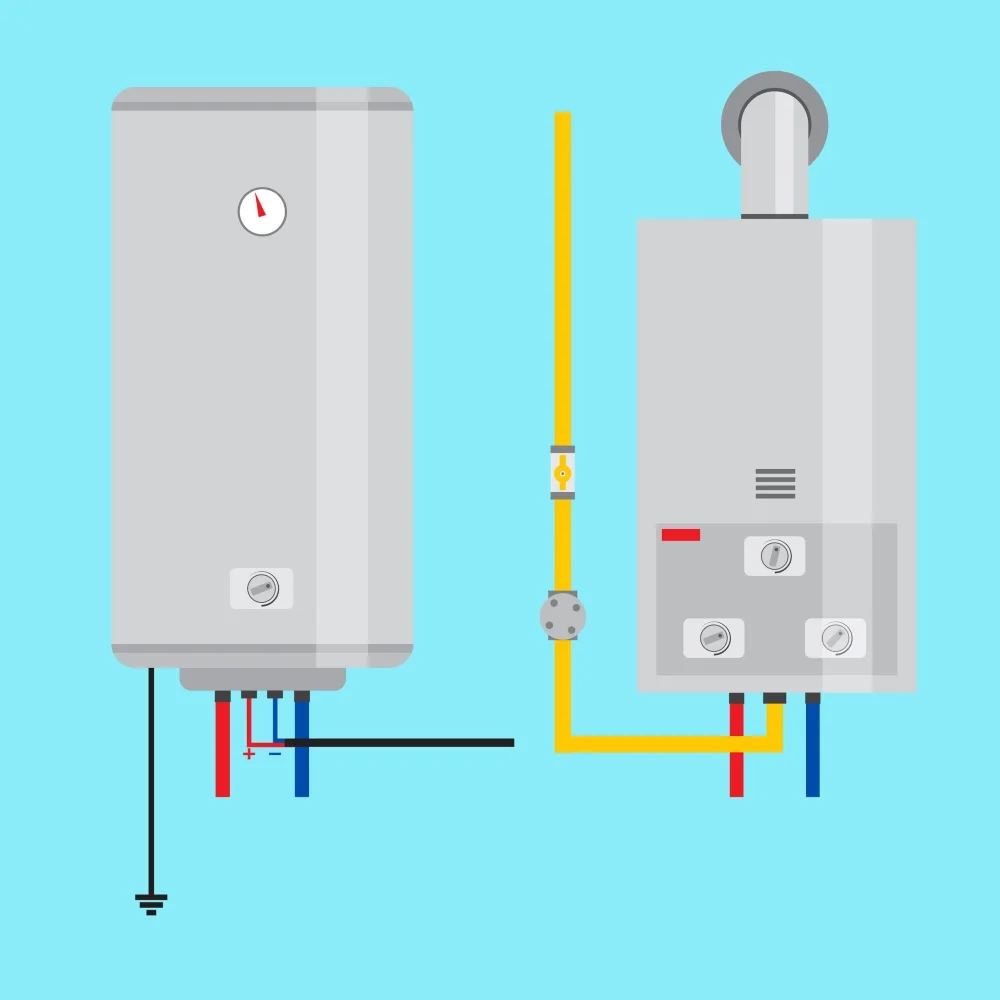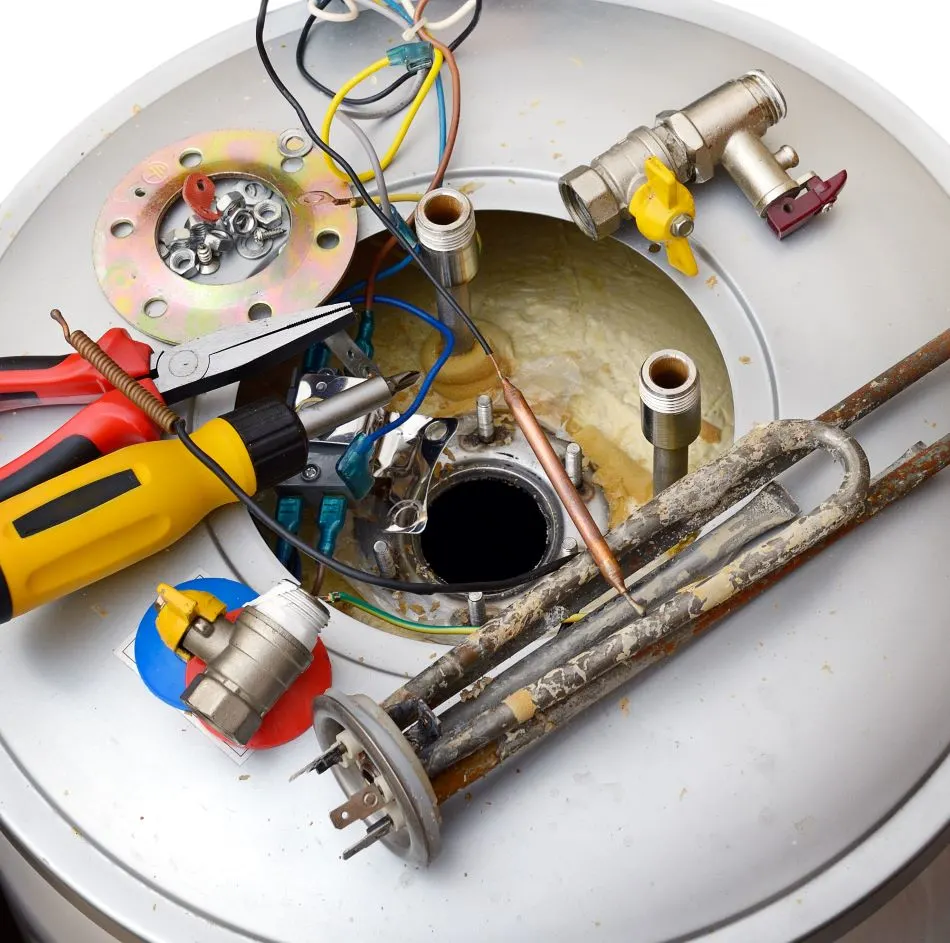Replacing anode rods is often a mission, and I don’t know of anyone who feels neutrally on the subject—everyone hates doing it. Unfortunately, for water heaters that have anode rods, they are vital to the longevity of the appliances, so replacing them is a maintenance matter that you cannot ignore. However, there are certain water heaters that do not have anodes, like tankless water heaters.
Let us investigate the function and importance of an anode rod and why it is not required in tankless water heaters.

Tankless water heaters neither have nor need anode rods. This is because they do not have water storage tanks, and the primary purpose of anode rods is to preferentially corrode instead of the water tank itself.
Anode Rods Only Required in Water Heaters With Tanks
Tankless water heaters are a great invention. They are smaller than their tank-style counterparts, energy-efficient, and more (although they are not without their drawbacks).
One of the great advantages of a tankless unit is not having to replace the anode rod—this is not because the tankless heater anode rods are long-lasting; it’s because they don’t have any!

Anode rods are not crucial to the water-heating function of a water heater. Instead, they are required to preserve the life of a water heater tank as it stores water (the how and why of this is explained below). As tankless water heaters do not store water, anode rods are superfluous to their design.
Most manufacturers of water heaters, including Rheem and State, offer tankless versions. While this concept is not new for water heaters, it only became feasible in the late 1900s.
What Is an Anode Rod? How Does it Work?
An anode rod is a metal rod used in water heaters that offers itself to corrosion through the process of electrolysis. It is placed through the top of the tank and sits in the stored water. It allows the corrosive elements in the water to attack the rod instead of the metal lining within the tank, and this happens because the rods are made from a more reactive metal that is more vulnerable to corrosion.
The rod becomes useless and must be replaced when it has been completely dissolved or is encased with calcium deposits.
There are three kinds of metals used for anode rods that exist for electric and gas water heaters.
- Magnesium rods are used for soft or softened water and work the best but will need frequent changing.
- Aluminum rods are used for hard water (the most common water in the US) corrosion, attracting calcium and magnesium to themselves.
- Zinc rods are made up of aluminum and zinc to combat bacteria build-up when sulfur odors occur.
Importance of Anode Rod to Water Tanks
Anode rods are one of the most important elements in a water heater tank. When water enters the tank and is stored over long periods, the corrosive elements in the water would attack the metal lining and fixtures within the tank. Some tanks have got a thin glass lining around the tank but this can become cracked and expose the metal underneath.
The extent of corrosion within a water heater tank is not only affected by the amount of time water spends in the tank but also the fact that water is frequently heated, enhancing the corrosive reaction.
Corrosion of the metal tank can lead to rusting and leaks within the tank, reducing its longevity and efficiency and increasing the risk of water-related damages in the home. This can only be avoided by using an anode rod and replacing it regularly.

Tankless Water Heater Smells Like Rotten Eggs
Not having an anode rod may prove to be a disadvantage in one particularly notable circumstance, and this is when you have smelly well water. Some wells house sulfate-reducing bacteria that release hydrogen sulfide gas into your water and plumbing system. Hydrogen sulfide gas smells distinctly like rotting eggs!
If you had a tank-style water heater with an anode, you would simply replace your magnesium or aluminum rod with a zinc or zinc alloy option, and ta-da, the smell disappears. This is because zinc is toxic to the bacteria in well water. With tankless water heaters, the water coming out of your pipes will not have been rid of the bacteria and, therefore, will stink of the gas they produce.
Sources
https://www.remodelingcosts.org/top-10-water-heaters-costs/
https://homeguide.com/costs/tankless-water-heater-installation-cost
https://www.pnnl.gov/main/publications/external/technical_reports/PNNL-22921.pdf
https://en.wikipedia.org/wiki/Electrolysis
https://www.youtube.com/watch?v=IYIkXS4x9v4
https://www.youtube.com/watch?v=BHUPFLbb8NY
https://cheapahotwater.com.au/extending-life-hot-water-heater/
https://www.freedrinkingwater.com/water_quality/chemical/basic-type-of-corrosion-explained-page2.htm
https://www.pnnl.gov/main/publications/external/technical_reports/PNNL-22921.pdf
https://en.wikipedia.org/wiki/Corrosion
https://www.haringtonsplumbing.com/tankless-water-heaters/
https://www.h2ouse.org/tips-check-anode-rod-water-heater/
https://simple.wikipedia.org/wiki/Soft_water
